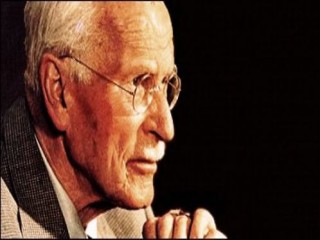
Carl Jung biography
Date of birth : 1875-07-26
Date of death : 1961-06-06
Birthplace : Kesswil, Thurgau, Switzerland
Nationality : Swiss
Category : Science and Technology
Last modified : 2010-04-29
Credited as : Psychiatrist, Jungian psychology, Psychology of Dementia Praecox
As a quiet, introverted child, Carl Jung would come to be one of the most influential psychiatrists in the world. And, his association, collaboration, and eventual fall out with Sigmund Freud would make his biography even more astounding. Through an expansive education and by authoring many books, Carl Jung donated so much to the study of the human psyche that he is considered by many to stand next to, and not in the shadow of, the world’s leading pschoanalysist -- Freud.
Born the son of a preacher, Jung went on to graduate with a degree in medicine from the University of Basel. He worked until 1909 in Burghöltzi, an asylum and clinic for those suffering the maladies of schizophrenia in Zürich. This experience undoubtedly affected Jung’s work in his later years.
Always interested in spirituality and parapsychology, Carl Jung dabbled in the arts of the spiritual world, ever exploring the realms of unconscious human experience that was often being ignored in modern-day medicine. Jung released his book entitled, Psychology of Dementia Praecox. This caught the attention of Sigmund Freud and the two would later work and lecture together in the United States.
What bitterly separated Freud and Jung was their different beliefs on just how much sexuality controlled motivation. Freud believed it absolute. Jung admitted it was a part of man’s make up, but wouldn’t go as far as Freud did in his theories. This break-up caused a six-year mental breakdown for the young Jung. Some say that Jung was having prophetic images of World War I, which was looming in the distance.
Carl Jung overcame his breakdown and found the modern system of Analytical Psychology. Feeling limited and enclosed by the academia of the day, Jung decided to travel the world to explore and be an anthropologist of the mind of the people. He later dubbed this the “Collective Consciousness” of mankind. He went on to classify personalities as extrovert or introvert. He regarded mental breakdowns and fervent behavior to be rooted in the fact that one had not yet discovered their own personal meaning in the world. Jung hypothesized that through the exploration of the unconscious, in dreams, in art, and in other cultures, the ‘self’ could fully be realized.
Jung had interests in the study of literature and alchemy, and came to theorize that men and women each had a certain anima or animus – the inner need to feel and not reject our own male or female tendencies. Many of his theories are cited in his biography entitled Memories, Dreams, Reflections where he also explores the psychological conflicts of his own life.
Carl Jung was made the president of the General Medical Society for Psychotherapy in 1933. While this organization did have certain Nazi connections, Jung accepted the position in hopes of preserving the field of psychoanalysis and therapy. With some criticized publications, Jung never claimed any personal anti-Semitic feelings, but only theorized about differences of how each interpreted the role of psychology.
















